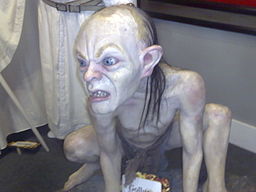Everyday we choose life or we choose death.
And God leaves life in his wake, not death.
When we’ve spent our lives using death-dealing coping mechanisms to cope with life, that is, engaging in death-dealing practices, it’s incredibly difficult to repent (turn in a new direction). We yearn for the good life, the kind of life Jesus spoke about. A life full of love, joy, peace, patience, kindness, goodness, faith, gentleness and self-control.
Yet, life seems so alien. Death is familiar. It’s easier, or at least it seems so at the moment, to resort to vicious living. Vicious living is death-full living. What is vicious living? A life full of vice (sin) – anger, greed, lust, sloth, pride, envy and gluttony (Seven Deadly Sins).
For example, someone hurts us or hurts those we love. We’re writhing in pain and want to give them a taste of their own medicine. So, we retaliate. Or because we haven’t dealt with our anger, because we stuffed it deep down, because we haven’t forgiven the death messenger, it has turned into depression and now we feel rotten. Whether through external anger or anger internalized as depression, we spread the poison to those around us. (Here I am not talking about those with a chemical imbalance).
We’re in pain or we’re lonely, so in an effort to anesthetize ourselves, we inject ourselves with food, illicit sex, alcohol or drugs. We go on shopping sprees. Like anesthesia, these are temporary. I can’t even call them temporary fixes. They don’t fix anything. The pain is still there though these may alleviate the pain in our souls for a split second. But resorting to these vicious ways unleashes a lifetime of destruction. Vicious actions cultivate death. Death of ourselves. Death to relationships (including our relationship with God). Vicious ways leave casualties.
Another picture. It’s like Gollum. He used to be a hobbit. But his pursuit of the ring brought death to him. It dehumanized him, turning him into a monster. And that’s what continued vicious (sinful) living does. It dehumanizes us. True, we might turn to vicious ways because we seek relief from pain. We drink to drown our sorrows. We’re illicit sex gluttons because we want pleasure to dull our pain. But what we don’t realize is that we are becoming less than human. We need to remember Gollum when we are tempted to give in.
How do we stop the cycle of vicious death? We call on Jesus for help. And we confess the truth: our ways are sinful and destructive. They are hurting us and those we love. We confess to God and we confess to friends. When we’re tempted again: we confess to God and we confess to friends. We trust the wisdom of wise others. And then we implement that wisdom little by little. We must endure the pain of transformation alone. What I mean is, no one can experience our internal going ons. However, we have brothers and sisters to walk along with us–good people who desire our good (love us). We may feel we’re alone, isolated from the church, from other human beings. We are not. We must only humble ourselves and ask for the help of trustworthy others.
That’s why Dallas Willard has said that the church should look more like a 12 steps group. I agree with him.
My scholar-pastor friend Michael Pahl has this to say about life and death:
The Creator gives life.
A common question: How do we know when God is present? How do we discern the activity of God’s Spirit? How do we know when someone, or something, is from God? Simple: the Creator gives life. Are people flourishing in a full and rich experience of being, living with open arms in the loving presence of God? If so, God is present. Is there hunger, illness, despair, hatred, division, suffering, abuse, or injustice? If so, whatever this is, it’s not from God. But it’s just the kind of place God wants to be; it’s exactly where the Spirit longs to work.
If you’d like more information about how one is transformed into a faithful disciple of Jesus, carefully read this article by Dallas Willard.
I would also be more than happy to help, too.

Marlena, I love when you talk about how to know when God is present (or absent). Too often in my experience, well-intentioned people spout phrases like “God knows what he’s doing here” as if God caused whatever calamity or suffering that someone is experiencing. But it’s not from God. He desires to work in that situation, but he didn’t cause it. Thank you.